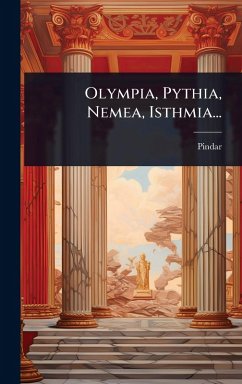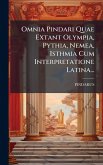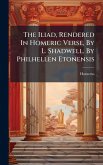Olympia, Pythia, Nemea, Isthmia... collects the victory odes of Pindar, one of the most celebrated poets of ancient Greece. Written in the Doric dialect of Greek, these odes commemorate the victors of the four Panhellenic Games: the Olympian, Pythian, Nemean, and Isthmian. Commissioned by wealthy and powerful patrons, Pindar's poems blend myth, legend, and praise to immortalize the athletes' achievements and connect them to the heroic past. This edition presents the original Latin text, allowing readers to engage directly with Pindarâ(TM)s powerful and evocative language. These odes offer a unique glimpse into the values and beliefs of ancient Greek society, celebrating athletic prowess, aristocratic virtue, and the enduring power of fame. Students of classics, history, and literature will find this volume an invaluable resource for understanding Pindar's artistry and the cultural significance of the ancient games. This work has been selected by scholars as being culturally important, and is part of the knowledge base of civilization as we know it. This work was reproduced from the original artifact, and remains as true to the original work as possible. Therefore, you will see the original copyright references, library stamps (as most of these works have been housed in our most important libraries around the world), and other notations in the work. This work is in the public domain in the United States of America, and possibly other nations. Within the United States, you may freely copy and distribute this work, as no entity (individual or corporate) has a copyright on the body of the work. As a reproduction of a historical artifact, this work may contain missing or blurred pages, poor pictures, errant marks, etc. Scholars believe, and we concur, that this work is important enough to be preserved, reproduced, and made generally available to the public. We appreciate your support of the preservation process, and thank you for being an important part of keeping this knowledge alive and relevant.
Bitte wählen Sie Ihr Anliegen aus.
Rechnungen
Retourenschein anfordern
Bestellstatus
Storno








